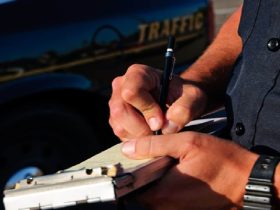The immediate consequences of a car accident is important for protecting your legal rights and ensuring proper compensation. The actions you take within the first 48 hours can significantly impact your claim’s success. This comprehensive guide outlines the essential steps and documentation needed during this critical period.
Immediate actions (0-2 hours)
- Safety and emergency response – Your priority is ensuring everyone’s safety. Move to a secure location if possible and assess the situation. Call emergency services immediately, even for seemingly minor accidents. Police documentation acts as an official record of the incident, which becomes valuable for your claim. Critical first steps:
- Call 911 for police and medical response
- Turn on hazard lights
- Set up warning triangles if available
- Check on all parties involved
- Don’t leave the accident scene
- Documentation at the scene – Proper documentation is essential for supporting your claim. Use your phone to capture comprehensive evidence before vehicles are moved or conditions change.
- Information collection – Gather essential information from all parties involved while memories are fresh and everyone is still at the scene. This information becomes crucial for insurance claims and potential legal action. Essential information to collect:
- Driver’s license numbers
- Insurance policy details
- Vehicle registration information
- Contact details of witnesses
- Photos of damage and scene
- Weather and road conditions
Next phase (2-24 hours)
- Medical evaluation – Get immediate medical attention, even if you feel fine. Some injuries may be apparent after you get out of adrenaline effect. Medical documentation establishes a direct link between the accident and your injuries.
- Insurance notification – Contact the insurance company to report the accident. Provide basic facts but avoid detailed statements or admissions of fault. Remember that insurance adjusters may use your statements to minimise compensation.
- Legal protection – Consider consulting with an Oklahoma City Car Accident Lawyer before providing detailed statements to any insurance company. Legal guidance helps protect your rights and prevents costly mistakes in the claims process.
Documentation period (24-48 hours)
- Medical records – Begin organising all medical documentation related to your accident. This includes emergency room reports, diagnostic tests, prescribed medications, and treatment recommendations.
- Expense tracking – Start a detailed record of all accident-related expenses. Keep receipts for medical care, transportation costs, and any other expenses related to the accident or your injuries.
- Evidence preservation – Take additional photos of any visible injuries, vehicle damage, or other relevant evidence. Physical evidence can change or disappear quickly, making early documentation crucial.
Additional considerations
Work notification – Inform your employer about the accident and any expected absences. Request documentation of missed work hours and any lost wages or benefits.
Vehicle Assessment – Arrange for a professional evaluation of your vehicle damage. Keep all repair estimates and reports from mechanics or body shops.
Communication records – Maintain a log of all accident-related communications, including:
- Insurance company contacts
- Medical appointments
- Police follow-up
- Witness statements
- Professional consultations
The first 48 hours after a car accident are critical for building a strong claim. So, within the period, find representation for car accident injuries in Oklahoma City and keep moving with this checklist to ensure you’ve taken the necessary steps to protect your rights.






